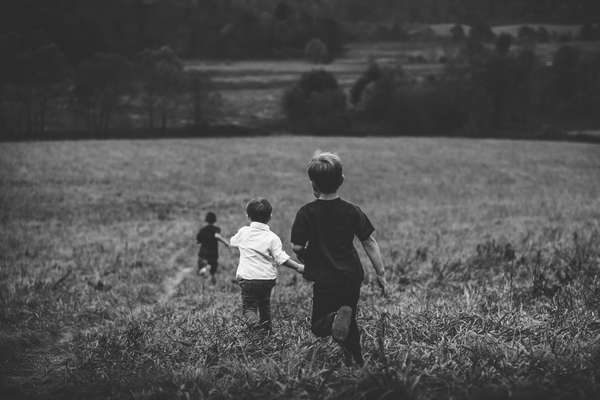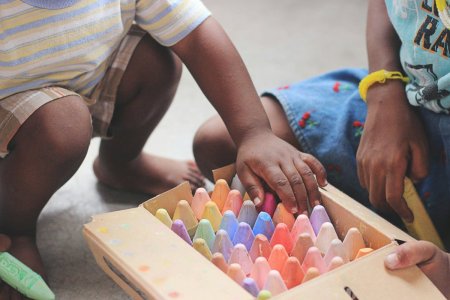
When we think about dementia, it’s easy to imagine it as something that quietly arrives in old age—unexpected, uninvited, and often devastating. But what if the earliest clues to cognitive decline were planted long before retirement, long before adulthood, even?
Groundbreaking new research is challenging that timeline, suggesting that the roots of dementia may stretch all the way back to childhood. And surprisingly, the trigger might not be a traumatic event or a major health crisis—it could be something as simple and overlooked as a common early-life experience.
This discovery is reshaping how scientists understand brain health across the lifespan, and it’s prompting a powerful question: how much of our future is shaped by the past we barely remember?
A discovery that changes everything we know about dementia risk
New research suggests that childhood loneliness may have long-term effects on brain health, potentially increasing the risk of dementia later in life—even if those feelings fade in adulthood.
A large-scale international study has uncovered a compelling link between early emotional experiences and cognitive decline.
Researchers from institutions in China, Australia, and the United States—including Harvard and Boston University—followed more than 13,000 adults over a seven-year period to explore how childhood perceptions of loneliness might influence brain health decades down the line.
What they found was striking: adults who recalled feeling lonely or lacking close friendships during childhood were more likely to experience faster cognitive decline and develop dementia in middle or later adulthood. Notably, this association held true even for individuals who no longer reported loneliness as adults.
The study emphasized that the emotional scars of childhood loneliness can linger, quietly affecting the brain for decades.
This research offers the first compelling evidence that childhood loneliness is a unique and potent predictor of dementia—independent of other known risk factors such as adult depression or social isolation.
The findings underscore how early emotional experiences can leave lasting imprints, with the lingering effects of childhood loneliness quietly influencing brain health for decades.
As a study noted, “Childhood is a critical period for the formation of health-related behaviors and psychological patterns that often persist into adulthood.”
Also read: Could this one overlooked issue raise your dementia risk? New study says yes.
Why childhood matters so much for brain health
Early childhood is a critical period for brain development, during which neural pathways form rapidly in response to both supportive and adverse experiences. At this stage, the brain is particularly sensitive to emotional and social stressors such as loneliness, poverty, neglect, and bullying.
Among these, loneliness can act as a chronic stressor, elevating stress hormone levels that may disrupt the development of brain regions involved in memory and learning. Simultaneously, children who feel emotionally isolated may miss out on the social interaction and play that support cognitive growth and help build resilient neural networks.
Emerging research has identified a “dose-dependent” pattern: the greater the adversity experienced in childhood, the higher the likelihood of daily memory difficulties and lower performance on tasks measuring mental processing speed and attention.
These findings are consistent with a broader body of evidence linking early-life hardship—including household instability and emotional trauma—to long-term impacts on brain health.[/]
One large-scale study published in 2024, which tracked over 10,000 older adults, found that those who reported specific forms of childhood adversity were more likely to exhibit signs of cognitive decline later in life.
Taken together, these insights are prompting researchers and public health leaders to examine how early emotional experiences shape brain function across the lifespan—and how early intervention might help reduce the risk of dementia in the years to come.
A growing crisis in childhood connection

In the wake of the COVID-19 pandemic, both the World Health Organization (WHO) and the US Surgeon General have sounded the alarm, naming loneliness a serious public health concern.
Recent data also reveal a troubling rise in emotional isolation among children and teens in the US.
A significant majority of girls between the ages of 11 and 13 report feeling lonely, while a notable portion of boys aged 11 to 17 share similar experiences.
The trend extends beyond adolescence. Among American adults, solitary eating has become increasingly common. According to recent findings, about 25% of young adults now eat every meal alone—a figure that has climbed more than 50% since 2003.
Experts point to shifts in lifestyle, technology use, and social habits as contributing factors, raising concerns about how these patterns may affect long-term well-being.
Together, these statistics paint a picture of a society where emotional connection is becoming harder to sustain, especially for younger generations.
As researchers continue to explore the links between early loneliness and later cognitive decline, the urgency to foster meaningful social bonds—at home, in schools, and across communities—has never been clearer.
Did you know?
A 2024 study involving more than 600,000 participants found that loneliness was linked to a 31% higher likelihood of developing dementia—comparable to the risks associated with smoking or lack of physical activity.
Looking ahead: prevention and hope
While we can’t go back and change our childhoods, this research highlights the importance of supporting children and young people today.
Encouraging social interaction, fostering strong friendships, and providing safe, nurturing environments can help protect the next generation from the long-term effects of loneliness.
For those of us in our 60s and beyond, it’s a reminder that our life stories matter—and that it’s never too late to seek connection and support. Staying socially active, joining clubs or community groups, and reaching out to friends and family can all help keep our minds sharp.
Have you ever thought about how your childhood experiences might be affecting your health today? Do you have memories of loneliness, or did you find comfort in close friendships and family ties? We’d love to hear your stories and insights—share your thoughts in the comments below and let’s keep the conversation going.
And remember, if you’re feeling isolated or concerned about your memory, don’t hesitate to reach out to your primary care provider. You’re not alone, and there’s always help available.
Let’s look out for each other—at every age.






